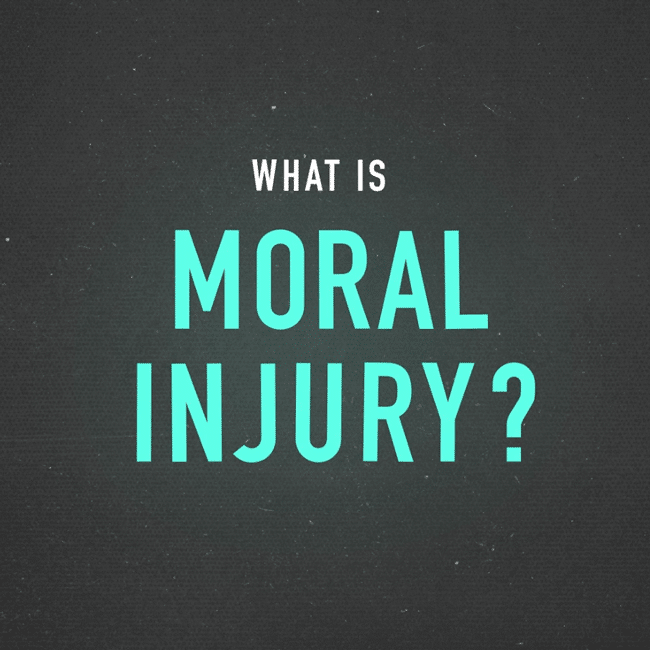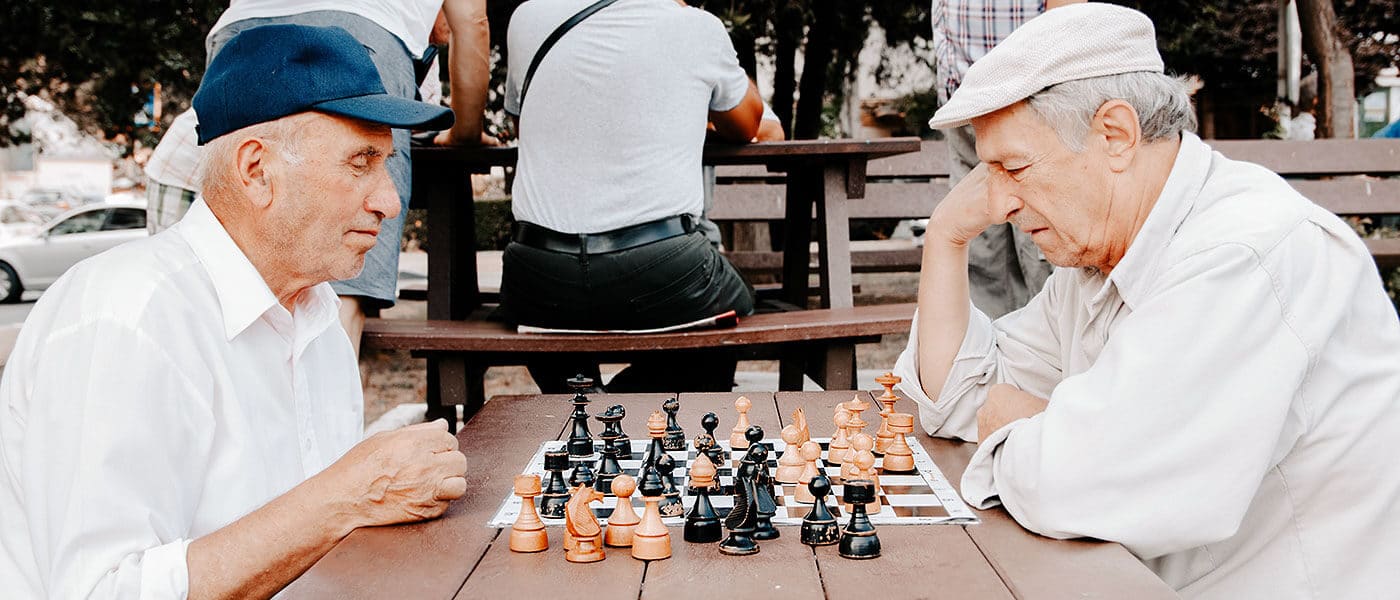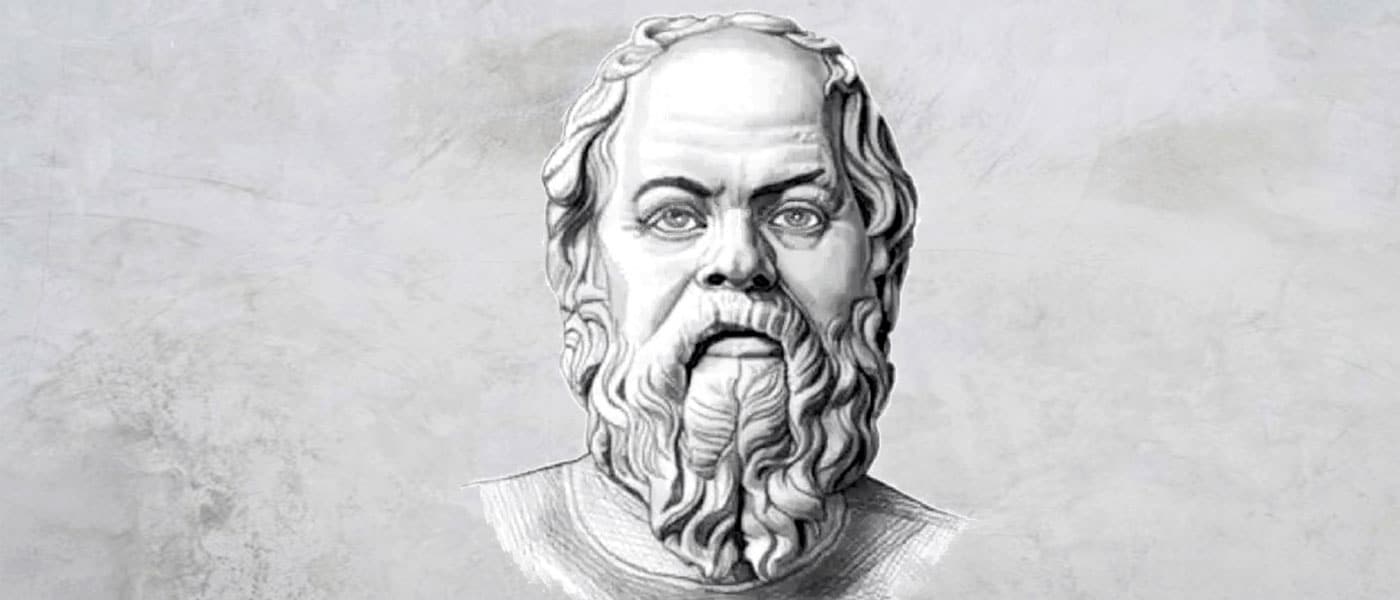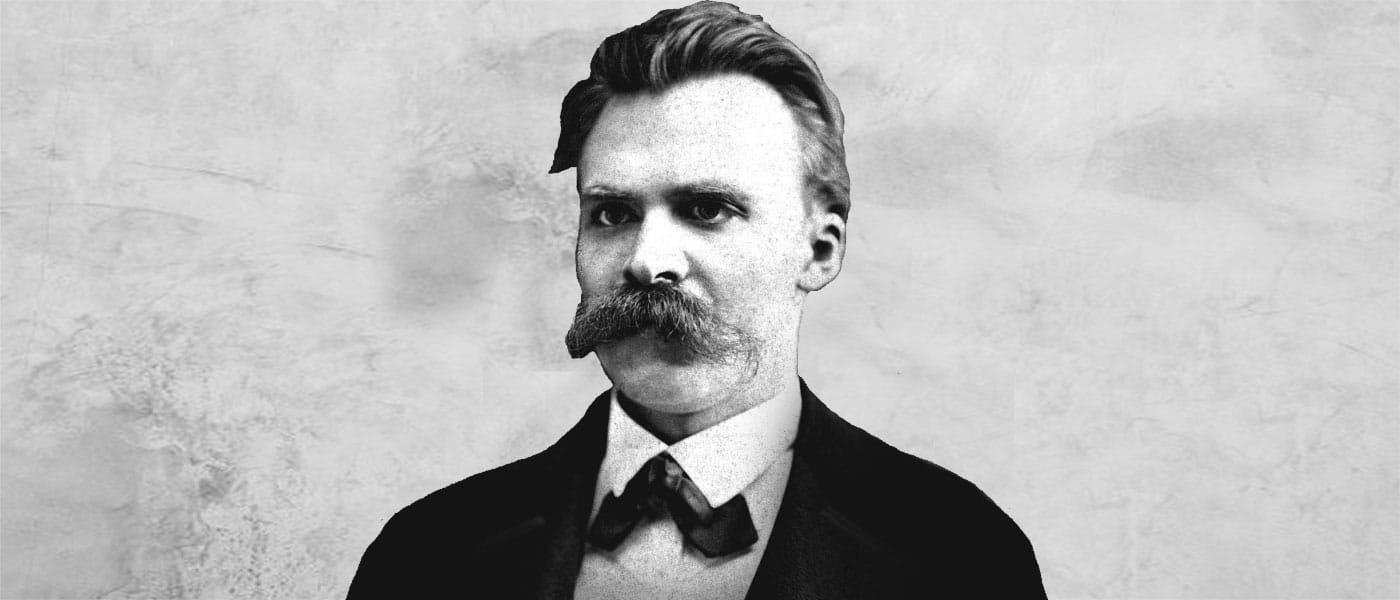Life and Shares

Thinking about investing? Chances are, you’re already playing the game. This new podcast unpicks the share market so you can better understand how the system works.
Did you know that some trading apps use the same psychological tricks as gambling apps? That the big players in financial services can pay to get “privileged access” to the ASX?
Life and Shares is a podcast from The Ethics Centre about the share market. Even if you don’t actively invest, chances are that you are already connected to the share market; as a taxpayer in Australia, a significant amount of your superannuation is already being traded.
In this four-part series, hosted by The Ethics Centre’s Cris Parker, we’ve assembled people from different industries to help you understand the rules of the game so you can make informed decisions. We’re looking beyond the jargon to unpack how the system works and what ethical issues you could – and should – consider if you decide to play.
Some may tell you they can pick a winning share. This series unpicks the share market so that you can make decisions you’ll be proud of.
Available to listen now on Spotify and Apple Podcasts.
This podcast is presented by The Ethics Centre. Our work is made possible by donations including the generous support of Ecstra Foundation – helping to build the financial wellbeing of Australians. This series follows the popular first season, Life and Debt.
Life and Shares Podcast Trailer
Whats inside the guide?
EPISODES
EPISODE ONE: PEELING BACK THE LABEL
Let’s break down the jargon: starting with investor classifications.
Did you know that your level of wealth impacts how you can invest in the share market? In this episode, we hear from RMIT Associate Professor Chris Berg who thinks it’s “deeply unethical” that retail investors (‘mum and dad’ investors) don’t have access to the kind of products that rich people do and so are shut out of some of the most lucrative and risky investments… but accountants say there’s a good reason for that.
We also learn about the murky areas of ‘ethical’ and ‘sustainable’ investing and how it differs from ‘responsible’ investing. If an Exchange Traded Fund (ETF) is labelled sustainable, is it irresponsible for it to have a large holding in a fossil fuel company? Is ESG reporting the best way to judge which companies are good to invest in?
GUESTS:
- Chris Berg, Associate Professor at RMIT University and Director and Co–founder of the RMIT Blockchain Innovation Hub
- Susheela Peres da Costa, Principal at The Stewardship Centre
EPISODE TWO: WHO'S RUNNING THE SHOW?
If video killed the radio star, have brokerage apps killed the stockbroker? What’s the role of robo-advisers? And how are algorithms shaping the marketplace?
Did you know that the big players in financial services can pay to get “privileged access” to the ASX? We ask Paul Lajbcygier from the Monash Data Futures Institute, is that fair?
We also hear from UNSW Professor Gigi Foster who thinks greed and profit make the market go round – and that’s not a bad thing. But on the other hand, she acknowledges there’s a growing class of people who don’t work for their wages – they just move their investments around.
GUESTS:
-
-
- Gigi Foster, Professor with the School of Economics at the University of New South Wales
- Paul Lajbcygier, Computation Finance expert at the Monash Data Futures Institute
-
EPISODE THREE: IS TRADING GAMBLING?
For the first two months of COVID, nearly 5,000 Australians opened an online trading account… every day. Eighty percent of them lost money.
So, is trading gambling? We speak with a clinical psychologist who’s concerned about the lack of awareness and resources for people addicted to trading. We also speak with co-founder of the International Day Trading Academy Cameron Buchanan, who admits that while trading is gambling, he thinks there’s an essential difference.
GUESTS:
- Cameron Buchanan, Co-founder of the International Day Trading Academy
- Anonymous Guest, Clinical Lead at a gambling treatment centre
Listen to Ep 3 on Apple or Spotify now.
EPISODE FOUR: THE POWER OF PERSUASION
Humans aren’t rational… and yet so much economic modelling assumes we are.
In this episode, we look at a Canadian experiment that investigated the ‘gamification’ of investment apps… and how one minor tweak to the app saw people increase the number of trades by a whopping 40%.
We meet behavioural finance specialists Angel Zhong from RMIT University and Ravi Dutta Powell from The Behavioural Insights Team, who explain how cognitive biases impact how we assess risk and make investment decisions.
GUESTS:
- Angel Zhong, Associate Professor of Finance, RMIT University
- Ravi Dutta-Powell, Senior Advisor, The Behaviour Insights Team
Moral injury
Each of us believes that, at our core, we are fundamentally ethical people. We always try to do the right thing. We have deeply held values and principles that we are not willing to compromise.
But sometimes we are thrust into situations where there appears to be no ‘right answer’ – where the best we can hope for is to take the ‘least bad’ option or, worse still, where we are forced to act against what we believe is right.
Moral injury is caused when we are compelled to act against what we believe is right in a high stakes situation.

Ethics in your inbox.
Get the latest inspiration, intelligence, events & more.
By signing up you agree to our privacy policy
You might be interested in…
Opinion + Analysis
Climate + Environment, Health + Wellbeing
How can we travel more ethically?
Opinion + Analysis
Business + Leadership, Relationships, Science + Technology, Society + Culture
Who does work make you? Severance and the etiquette of labour
Explainer
Health + Wellbeing, Relationships
Ethics Explainer: Values
Opinion + Analysis
Business + Leadership, Health + Wellbeing, Science + Technology
Can robots solve our aged care crisis?
BY The Ethics Centre
The Ethics Centre is a not-for-profit organisation developing innovative programs, services and experiences, designed to bring ethics to the centre of professional and personal life.
The ethics of drug injecting rooms

The ethics of drug injecting rooms
Opinion + AnalysisHealth + WellbeingScience + Technology
BY Zach Wilkinson 28 JUN 2023
Should we allow people to use illicit drugs if it means that we can reduce the harm they cause? Or is doing so just promoting bad behaviour?
Illicit drug use costs the Australian economy billions of dollars each year, not to mention the associated social and health costs that it imposes on individuals and communities. For the last several decades, the policy focus has been on reducing illicit drug use, including making it illegal to possess and consume many drugs.
Yet Australia’s response to illicit drug use is becoming increasingly aligned with the approach called ‘harm reduction,’ which includes initiatives like supervised injecting rooms and drug checking services, like pill testing.
Harm reduction initiatives effectively suspend the illegality of drug possession in certain spaces to prioritise the safety and wellbeing of people who use drugs. Supervised injecting rooms allow people to bring in their illicit drugs, acquire clean injecting equipment and receive guidance from medical professionals. Similarly, pill testing creates a space for festival-goers to learn about the contents and potency of their drugs, tacitly accepting that they will be consumed.
Harm reduction is best understood in contrast with an abstinence-based approach, which has the goal of ceasing drug use altogether. Harm reduction does not enforce abstinence, instead focusing on reducing the adverse events that can result from unsafe drug use such as overdose, death and disease.
Yet there is a great deal of debate around the ethics of harm reduction, with some people seeing it as being the obvious way to minimise the impact of drug use and to help addicts battle dependence, while those who favour abstinence often consider it to be unethical in principle.
Much of the debate is muddied by the fact that those who embrace one ethical perspective often fail to understand the issue from the other perspective, resulting in both sides talking past each other. In order for us to make an informed and ethical choice about harm reduction, it’s important to understand both perspectives.
The ethics of drug use
Deontology and consequentialism are two moral theories that inform the various views around drug use. Deontology focuses on what kinds of acts are right or wrong, judging them according to moral norms or whether they accord with things like duties and human rights.
Immanuel Kant famously argued that we should only act in ways that we would wish to become universal laws. Accordingly, if you think it’s okay to take drugs in one context, then you’re effectively endorsing drug use for everyone. So a deontologist might argue that people should not be allowed to use illicit drugs in supervised injecting rooms, because we would not want to allow drug use in all spaces.
An abstinence-based approach embodies this reasoning in its focus on stopping illicit drug use through treatment and incarceration. It can also explain the concern that condoning drug use in certain spaces sends a bad message to the wider community, as argued by John Barilaro in the Sydney Morning Herald:
“…it’d be your taxpayer dollars spent funding a pill-testing regime designed to give your loved ones and their friends the green light to take an illicit substance at a music festival, but not anywhere else. If we’re to tackle the scourge of drugs in our regional towns and cities, we need one consistent message.”
However, deontology can also be inflexible when it comes to dealing with different circumstances or contexts. Abstinence-based approaches can apply the same norms to long-term drug uses as it does to teenagers who have not yet engaged in illicit drug use. With still high rates of morbidity and mortality for the former group, some may prefer an alternative approach that highlights this context and these consequences in its moral reasoning.
Harms and benefits
Enter consequentialism, which judges good and bad in terms of the outcomes of our actions. Harm reduction is strongly informed by consequentialism in asserting that the safety and wellbeing of people who use drugs are of primary concern. Whether drug use should be allowed in a particular space is answered by whether things like death, overdose and disease are expected to increase or decrease as a result. This is why scientific evaluations play an important role in harm reduction advocacy. As Stephen Bright argued in The Conversation:
“…safe injecting facilities around the world: ’have been found to reduce the number of fatal and non-fatal drug overdoses and the spread of blood borne viral infections (including HIV and hepatitis B and C) both among people who inject drugs and in the wider community.’”
This approach also considers other potential societal harms, such as public injections and improper disposal of needles, as well as burden on the health system, crime and satisfaction in the surrounding community.
This focus on consequences can also lead to the moral endorsement of some counter-intuitive initiatives. Because a consequentialist perspective will look at a wide range of the outcomes associated with a program, including the cost and harms caused by criminalisation, such as policing and incarceration, it can also conclude that some dangerous drugs should be decriminalised or legalised, if doing so would reduce their overall harm.
While a useful way to begin thinking about Australia’s approach to drug use, there is of course nuance worth noting. A deontological abstinence-based approach assumes that establishing a drug-free society is even possible, which is highly contested by harm reduction advocates. Disagreement on this possibility seems to reflect intuitive beliefs about people and about drugs. This is perhaps part of why discussions surrounding harm reduction initiatives often become so polarised. Nevertheless, these two moral theories can help us begin to understand how people view quite different dimensions of drug treatment and policy as ethically important.
Ethics in your inbox.
Get the latest inspiration, intelligence, events & more.
By signing up you agree to our privacy policy
You might be interested in…
Opinion + Analysis
Health + Wellbeing, Science + Technology
The undeserved doubt of the anti-vaxxer
Opinion + Analysis
Business + Leadership, Health + Wellbeing, Relationships
Moving on from the pandemic means letting go
Opinion + Analysis
Health + Wellbeing
Want your kids to make good decisions? Here’s what they need to learn
Opinion + Analysis
Business + Leadership, Health + Wellbeing
What your email signature says about you
BY Zach Wilkinson
Zach is currently in the public health field researching and writing on illicit drugs against a backdrop of academic philosophy, psychology and the broader health sciences by way of USYD and UNSW.
The ethical dilemma of the 4-day work week

The ethical dilemma of the 4-day work week
Opinion + AnalysisHealth + WellbeingBusiness + Leadership
BY The Ethics Centre 12 APR 2023
Ahead of an automation and artificial intelligence revolution, and a possible global recession, we are sizing up ways to ‘work smarter, not harder’. Could the 4-day work week be the key to helping us adapt and thrive in the future?
As the workforce plunged into a pandemic that upended our traditional work hours, workplaces and workloads, we received the collective opportunity to question the 9-5, Monday to Friday model that has driven the global economy for the past several decades.
Workers were astounded by what they’d gained back from working remotely and with more flexible hours. Not only did the care of elderly, sick or young people become easier from the home office, but also hours that were previously spent commuting shifted to more family and personal time.
This change in where we work sparked further thought about how much time we spend working. In 2022, the largest and most successful trial of a four-day working week delivered impressive results. Some 92% of 61 UK companies who participated in a two-month trial of the shorter week declared they’d be sticking with the 100:80:100 model in what the 4 Day Week director Joe Ryle called a “major breakthrough moment” for the movement.
Momentum Mental Health chief executive officer Debbie Bailey, who participated in the study, said her team had maintained productivity and increased output. But what had stirred her more deeply was a measurable “increase in work-life balance, happiness at work, sleep per night, and a reduction in stress” among staff.
However, Bailey said, the shorter working week must remain viable for her bottom line, something she ensures through a tailor-made ‘Rules of Engagement’ in her team. “For example, if we don’t maintain 100 per cent outputs, an individual or the full team can be required to return to a 5-day week pattern,” she explained.
Beyond staff satisfaction, a successful implementation of the 4-day week model could also boost the bottom line for businesses.
Reimagining a more ethical working environment, advocates say, can yield comprehensive social benefits, including balancing gender roles, elongated lifespans, increased employee well-being, improved staff recruitment and retention and a much-needed reduction in workers’ carbon footprint as Australia works towards net-zero by 2050.
University of Queensland Business School’s associate professor Remi Ayoko says working parents with a young family will benefit the most from a modified work week, with far greater leisure time away from the keyboard offering more opportunity for travel and adventure further afield, as well as increased familial bonding and life experiences along the way.
However, similar to remote work, the 4-day working week has not been without its criticisms. Workplace connectivity is one aspect that can fall by the wayside when implementing the model – a valuable culture-building part of work, according to the University of Auckland’s Helen Delaney and Loughborough University’s Catherine Casey.
Some workers reported that “the urgency and pressure was causing “heightened stress levels,” leaving them in need of the additional day off to recover from work intensity. This raises the question of whether it is ethical for a workplace to demand a more robotic and less human-focussed performance.
In November last year, Australian staff at several of Unilever’s household names, including Dove, Rexona, Surf, Omo, TRESemmé, Continental and Streets, trialed a 100:80:100 model in the workplace. Factory workers did not take part due to union agreements.
To maintain productivity, Unilever staff were advised to cut “lesser value” activities during working hours, like superfluous meetings and the use of staff collaboration tool Microsoft Teams, in order to “free up time to work on items that matter most to the people we serve, externally and internally”.
If eyebrows were raised by that instruction, they needed only look across the ditch at Unilever New Zealand, where an 18-month trial yielded impressive results. Some 80 staff took a third (34%) fewer sick days, stress levels fell by a third (33%), and issues with work-life balance tumbled by two-thirds (67%). An independent team from the University of Technology Sydney monitored the results.
Keogh Consulting CEO Margit Mansfield told ABC Perth that she would advise business leaders considering the 4-day week to first assess the existing flexibility and autonomy arrangements in place – put simply, looking into where and when your staff actually want to work – to determine the most ethically advantageous way to shake things up.
Mansfield says focussing on redesigning jobs to suit new working environments can be a far more positive experience than retrofitting old ones with new ways. It can mean changing “the whole ecosystem around whatever the reduced hours are, because it’s not just simply, well, ‘just be as productive in four days’, and ‘you’re on five if the job is so big that it just simply cannot be done’.”
New modes of working, whether in shorter weeks or remote, are also seeing the workplace grappling with a trust revolution. On the one hand, the rise of project management software like Asana is helping managers monitor deliverables and workload in an open, transparent and ethical way, while on the other, controversial tracking software installed on work computers is causing many people, already concerned about their data privacy, to consider other workplaces.
It is important to recognise that the relationship between employer and employee is not one-sided and the reciprocation of trust is essential for creating a work environment that fosters productivity, innovation and wellbeing.
While employees now anticipate flexibility to maintain a healthy work-life balance, employers also have expectations – one of which is that employees still contribute to the culture of the organisation.
When employees are engaged and motivated they are more likely to contribute to the culture of the organisation which can inform the way the business interacts with society more broadly. Trust reciprocation is not just about meeting individual needs but also working together on a common purpose. By prioritising the well-being of their employees and empowering them to contribute to the culture of the organisation a virtuous cycle is being created. Whether this is a 4-day working week or a hybrid structure is for the employer and employee to explore.
CEO of Microsoft, Satya Nadella says forming a new world working relationship based on trust between all parties can be far more powerful for a business than building parameters around workers. After all, “people come to work for other people, not because of some policy”.
Ethics in your inbox.
Get the latest inspiration, intelligence, events & more.
By signing up you agree to our privacy policy
You might be interested in…
Explainer
Business + Leadership, Politics + Human Rights
Ethics Explainer: Dirty Hands
Opinion + Analysis
Business + Leadership
How BlueRock uses culture to attract top talent
Opinion + Analysis
Health + Wellbeing, Society + Culture
Should I have children? Here’s what the philosophers say
Opinion + Analysis
Business + Leadership
The value of principle over prescription
BY The Ethics Centre
The Ethics Centre is a not-for-profit organisation developing innovative programs, services and experiences, designed to bring ethics to the centre of professional and personal life.
Australia’s paid parental leave reform is only one step in addressing gender-based disadvantage

Australia’s paid parental leave reform is only one step in addressing gender-based disadvantage
Opinion + AnalysisHealth + WellbeingRelationships
BY Georgia Fagan 21 MAR 2023
Parental leave policies are designed to support and protect working parents. However, we need to exercise greater imagination when it comes to the roles of women, family and care if we are to promote greater social equity.
In October 2022, prime minister Anthony Albanese announced a major reform to Australia’s paid parental leave scheme, making it more flexible for parents and extending the period that it covers. Labor’s reforms are undoubtedly an improvement over the existing scheme, which has been insufficient to address gender-based disadvantage.
Labor’s new arrangement builds on the current Parental Leave Pay (PLP) scheme. This entitles a primary carer – usually the mother – to 18 weeks paid leave at the national minimum wage, along with any parental leave offered by their employer. It runs in parallel to the Dad and Partner Pay scheme, which offers “eligible working dads and partners” two weeks paid leave at the minimum wage. Recipients of this scheme are required to be employed and recipients of both need to be earning less than ~$156,000 annually.
Albanese’s announced expansion of the PLP will increase it to 26 weeks paid leave by 2026, which can be shared between carers if they wish. Labor claims that this will offer parents greater flexibility while retaining continuity with the existing scheme.
Labor’s new scheme is an improvement over the older arrangement, but is it enough to move society closer to the goal of social equity? To do so, we need to do more to reduce the marginalisation of women economically, in the home and in the workplace, and to expand our imagination when it comes to parenthood and caring responsibilities.
Uneven playing field
Gender-based disadvantage is a global occurrence. Currently, being a woman acts as a reliable determining factor of that person’s social, health and economic disadvantage throughout their life. Paid parental schemes are one type of governmental policy that can facilitate and encourage the structural reform necessary to address gender-based disadvantage. Certain parental leave policies can help reconfigure conceptions about parenting, family and work in ways that better align with a country’s goals and attitudes surrounding both gender equity and economic participation.
Paid parental leave schemes that provide adequate leave periods, pay rates, and encourage shared caring patterns across households, can fundamentally impact the degree to which one’s gender acts a significant determining factor of their opportunities and wellbeing across their lifetime.
The Parenthood, an Australian not-for-profit, emphasises that motherhood acts as a penalty against women, children and their families. This penalty is experienced acutely by women who have children and manifests as diminished health and economic security, reducing women’s social capacity to achieve shared gender equity goals. Their research highlights that countries that offer higher levels of maternity and paternity leave, such as Germany, in combination with access to affordable childcare results in higher lifetime earnings and work participation rates for women.
Australia’s existing PLP scheme, on the other hand, works to both create and foster conditions that reduce the capacity for women to achieve the same social and economic security as their male peers. It hugely limits women’s capacity to return to work, to remain at home, and to freely negotiate alternative patterns of care with their partners. This in combination with a growing casualised workforce who remain unable to access adequate employer support emphasises the need for extensive policy amendments if we hope to realise our goals of social equity.
Labour’s proposed expansion incrementally begins to better align the PLP with the goals set forth by organisations like The Parenthood.
Providing women and their families with more freedom to independently determine their work and social structures may mark the beginning of a positive move against gender-based disadvantage. However, the proposed expansion is not a cure-all for a society that remains wedded to particular conceptions of women, parenting, and labour more broadly.
The working rights of mothers
We can see how disadvantage goes beyond parental leave by looking at how mothers are treated in workplaces such as universities. Dr Talia Morag at the University of Wollongong advocates for the working rights of mothers employed within her university. Prior to Albanese’s announcement, Morag emphasised the cultural resistance, or rather a lack of imagination, when it came to merging the concept of motherhood with an academic career.
Class scheduling, travel funding and networking capacities are all important features of an academic career that require attention and reconfiguration if mothers, especially of infants and young children, are to be sufficiently included and afforded equal capacities to succeed in university settings.
Even under expanded PLP schemes, mothers who breastfeed, for example, face difficulty when returning to work if they remain unsupported and marginalised in those workplaces. As Morag emphasises, many casual or early-career academic staff are unentitled to receive government PLP or university funded parental leave.
Critically, the associations between being woman and being taken to be an impediment to one’s workplace is not an issue faced solely by those who become mothers.
As Morag remarks, “it does not matter if you are or are not going to be a mother, you will be labelled as a potential mother for most of your career. And that will come with expectations and discrimination.”
The gender-based disadvantage emergent from these cultural associations will remain if broader cultural change is not sought alongside expanded PLP schemes.
Expanding our imaginations as to how current notions of motherhood, family and caring patterns can look will require the combined efforts of expanded PLP schemes and the creation of more hospitable working environments for parents. Women may remain being seen as potential mothers and potential liabilities to places of work, however this liability may slowly begin to shift.
We historically have, and seemingly remain, committed to reproducing our species. This means we continue to produce little people who grow up to experience pleasure, pain, and everything in between. If we also see ourselves as committed to managing some of that pain, to expanding the opportunities these little people get, as well as reducing how gender unfairly determines opportunity on their behalf, we will require policies that assist parents to do so.
Affording families this chance benefits not only mothers, or parents, but also their children, their children’s children, and all others in our communities. Granting parents the capacity to choose who works where and when can help us, incrementally, along a long path to a world that is perhaps more dynamic and equitable than we can even begin to envision.
Ethics in your inbox.
Get the latest inspiration, intelligence, events & more.
By signing up you agree to our privacy policy
You might be interested in…
Opinion + Analysis
Health + Wellbeing
How to live a good life
Big thinker
Relationships, Society + Culture
Big Thinker: Socrates
Opinion + Analysis
Health + Wellbeing, Society + Culture
The right to connect
Explainer
Relationships
Ethics Explainer: Moral Absolutism
BY Georgia Fagan
Georgia has an academic and professional background in applied ethics, feminism and humanitarian aid. They are currently completing a Masters of Philosophy at the University of Sydney on the topic of gender equality and pragmatic feminist ethics. Georgia also holds a degree in Psychology and undertakes research on cross-cultural feminist initiatives in Bangladeshi refugee camps.
Donation? More like dump nation

Donation? More like dump nation
Opinion + AnalysisClimate + EnvironmentHealth + Wellbeing
BY Amal Awad 27 FEB 2023
In the desire to clean up our living and mental spaces, we need not create a costly mess for charitable organisations receiving our donations.
Several years ago when I was producing for radio, I found myself knee-deep in the topic of minimalism. I was fascinated by the concept: living with a minimal number of possessions, replacing rather than accumulating, being ‘timeless’ rather than at the mercy of trends. At the forefront of the movement were Joshua Fields Millburn and Ryan Nicodemus, aka The Minimalists, whom The New Yorker called ‘Sincere prophets of anti-consumerism’. They rose to fame with documentaries, a podcast and a best-selling book, all of which promoted this ‘minimalist lifestyle’.
A minimalist approach does not preclude you from purchasing the latest smartphone, it resists desiring that smartphone, which, like most on-trend technology, will either get superseded by a newer version within a year, or break the moment its two-year warranty has expired. (Remember your childhood TV that worked for 17 years?)
I interviewed Nicodemus and easily understood how his austere approach to housekeeping might have its appeal. What would it be like to not be weighed down by your possessions? To actually derive full use out of what you already owned? To simply not want the newest shiny thing?
At the heart of this approach is a mental philosophy that fuels a mindset, not just a way of life. Being a minimalist will mean you’re not part of the problem in what seems to be an ever-expanding consumerist wasteland. You’re better for the environment because you don’t accumulate. You’re not someone who, in the process of divesting yourself of unneeded possessions, overloads your local op shop because you have five different versions of a favourite item.
While the ability to not accumulate possessions may be harder to achieve for most people, as each new year rolls in with the proclamation of a ‘New Year, New Me’, we tend to become minimalists.
In a fever, we rule out bad habits and embrace healthy ones. Invariably, this involves some level of decluttering because we acknowledge that we are wasting money on things we don’t need.
And this is why it’s not uncommon to drive past a Vinnie’s in January and see half-opened bags of donations strewn across the pavement.
That ardent desire to strip away the baggage in our lives ends up becoming someone else’s problem when we dump donations, rather than engaging with charitable organisations and op-shops directly.
Unfortunately, this is a cumbersome, costly problem for the charitable organisations receiving these donations. Rather than an orderly, well-packed offering of useable items, charities are reporting the prevalence of irresponsible offloading of unusable items. As Tory Shepherd reported for The Guardian, “Australian charities are forking out millions of dollars to deal with donation ‘dumping’ at the same time that they are seeing rising demand for their services ‘as the cost-of-living crisis bites’”.
Not for the first time, we are seeing op shops plead with their local communities to not dump and run, leaving behind what is often rubbish, or items that the shop cannot accommodate, such as furniture. Following Covid lockdowns, we saw a similar phenomenon as people took stock of their lives and possessions—and left it to charities to take care of their unwanted items. The NSW Environment Protection Authority (EPA) and Charitable Recycling Australia are pushing this message of responsible donating.
As a deeply consumerist society, we’re at the mercy of goods that are not built to last.
There is a need for donations; organisations like Vinnies are clearly welcoming of reusable, recyclable goods that can be repurposed. However, instead of owning the act of throwing something away, we might pass on the responsibility by giving it away and making it a charitable act. There are deeply-felt financial and practical impacts on these organisations when they have to clean up the mess of people who don’t take the time to sort through their possessions, or who are careless in how they deliver their donations. The resounding advice is that if it’s something you’d give to a friend, it’s suitable for a donation.
Not everyone can afford goods made of recyclable or sustainable material. But we can try to create a new way forward. We can reconsider our approach to ownership and divestment; buy what we need and try to purchase higher quality, sustainable goods whenever possible. We can also appeal to businesses to enact more sustainable practices. We can lobby local councils and government.
In the meantime, while it’s a positive that we don’t want to just throw things out, it does not take much to do a stocktake before offering up donations: is what am I giving away something I would give to someone I care about? Is it in working order? For large items, check with your op shop or organisation before delivering them. Don’t leave items in front of a closed shopfront. Don’t treat charities like a garbage dump.
There is tidying a la Marie Kondo but then there is medically-reviewed physical decluttering that research suggests is good for our mental health. Even digital decluttering can have a positive impact on our productivity. But it’s worth considering, when we divest ourselves of unwanted goods, whether we are making sustainable donations or trashing items simply to upgrade.
If we can accept that decluttering is good for us, does that not also suggest that having cleaner spaces with fewer possessions is a better way to live? Perhaps a more worthy and sustainable goal is to take some cues from the minimalist mindset. I’m all for annual purges but even better would be to not need to declutter in the first place.
Ethics in your inbox.
Get the latest inspiration, intelligence, events & more.
By signing up you agree to our privacy policy
You might be interested in…
LISTEN
Health + Wellbeing, Society + Culture
Life and Debt
Opinion + Analysis
Health + Wellbeing, Relationships
There is something very revealing about #ToiletPaperGate
Opinion + Analysis
Health + Wellbeing, Relationships
Easter and the humility revolution
Opinion + Analysis
Politics + Human Rights, Climate + Environment
What we owe each other: Intergenerational and intertemporal justice
Should you celebrate Christmas if you’re not religious?

Should you celebrate Christmas if you’re not religious?
Opinion + AnalysisHealth + WellbeingRelationships
BY Dr Tim Dean 29 NOV 2022
Religious holidays like Christmas are not just for believers. They involve rituals and customs that can help reinforce social bonds and bring people together, no matter what their beliefs.
What is Christmas all about? On the one hand, it’s a traditional Christian religious holiday that celebrates the birth of Jesus Christ, the son of God. On the other hand, it’s a commercial frenzy, where people battle crowds in vast shopping centres blanketed in themed decorations to buy disposable trinkets that are destined to be handed over to disappointed relatives straining, but failing, to smile with their eyes.
Either way, if one is not overly devout or materialistic, Christmas might seem like something worth giving a miss. And if you’ve lost your religion entirely, it might seem appropriate to dispense with Christmas traditions.
The same applies for major holidays celebrated by other religions. If you do abandon Christmas – or Hanukkah, Diwali, Ramadan, etc – you’ll be missing out on an opportunity to participate in a ritualistic practice that is about more than the scriptures suggest, and certainly more than the themed commercial advertising represents.
This is because religious holidays like Christmas are not what they seem. They are not fundamentally about spirituality, as they purport to be. They’re certainly not about boosting economic activity, even if that’s what they’ve become. Rather, they’re about bringing people together to create shared meaning.
Anyone can benefit from this effect if they participate in the rituals and traditions of a religious holiday, including people of that religion who are no longer believers, as well as those outside of the culture who are welcomed in.
Do you believe in Santa Claus?
Religiosity is in decline in most countries around the globe, Australia included. In fact, Australia is in the top five nations in the world in terms of the proportion of self-declared atheists. And “no religion” is the fastest growing group, jumping from less than 1% of the population in 1966 to 38% in the latest Census figures from 2021. These numbers are even higher for young people, which suggests the move away from religion will continue into the future.
For the ‘new atheists,’ this looks like a good thing. Thinkers such as Richard Dawkins, Christopher Hitchens and Sam Harris famously argued that religion is dangerous force that spreads unscientific beliefs and perpetuates social divisions. They have urged people to drop their spiritual beliefs and embrace a secular rational lifestyle.
There are merits to their arguments, but their bundling of religions’ problematic metaphysics with the traditions and rituals they promote overlooks that the two are not necessarily connected: one need not believe that three wise men tracked a mystical light in the sky to the birthplace of Jesus so they could give him gold, frankincense and myrrh in order to hand over a present to a loved one. It’s like how we already agree that one need not believe in Santa Claus in order to stuff the odd stocking.
The other thing the scorched Earth version of atheism overlooks is that the decline of religiosity has corresponded with an increase in social fragmentation in the modern world. Many people feel a sense of social isolation and disconnection from those around them, even if they live in the midst of a metropolis, which is contributing to the growing crisis in mental health.
This is not a new phenomenon. A similar pattern was observed by sociologists such as Émile Durkheim and Ferdinand Tönnies in the late 19th century. They attributed it to the rise of individualism over community as modern societies expanded following the industrial revolution. The erosion of community meant that individuals were left to seek their own meaning and purpose in life, as well as forge their own social connections.
This lean towards individualism affords each person some freedom in choosing what is meaningful for them, but it also involves a lot of work; it’s no mean feat to single-handedly create a grand structure to make sense of the world, to inform what we should value and what morals we should abide by. And there are many forces that are only too happy to sell their own vision to the individual, including all manner of pseudo-spiritual causes, conspiracy theories and self-help gurus. But the strongest force today is capitalism, which sells a vision of work and consumption that is superficially appealing but which many find to be ultimately hollow and unfulfilling.
One of the mechanisms sociologists identified that helped to ameliorate the individualistic tendency towards social disconnection and isolation was religion. But it wasn’t the spiritual dimensions of religion that did the most work, it was the rituals and traditions that brought people together to reinforce social connections and create shared meaning.
Rituals like gathering for an annual feast with family, which signifies a break from everyday consumption and gives us an opportunity to show care and respect for others as we feed them. Or gift-giving, which motivates us to think carefully about the most important people in our lives – who they are, what they care about, what they lack – and encourages us to find or make something, or use our wealth, to bring them joy. Even singing carols has an effect. The act of singing in unison is a potent way of bonding with those around us, and even the habit of complaining about our most hated Christmas tunes can bring people together.
Come together
There are many more rituals involved with Christmas, and many analogous rituals associated with the festivals of other religions.
While their surface details and spiritual justifications may differ, at their heart they’re all about one thing: bringing us closer together. They’re a form of social glue that is arguably much needed in today’s world.
While the differences between traditions can be a source of division, and the rise of multiculturalism and sensitivity towards other cultures can be a source of reservation when it comes to participating in rituals that are not ‘our own,’ we still have a lot to gain by continuing to practise festive rituals, even if we no longer subscribe to their supernatural pretexts. We also have a lot to offer if we welcome those of other cultural and religious traditions to share our rituals, and if we remain open to learn from and share in theirs.
On the surface, Christmas looks like it’s about spirituality or like it’s been co-opted by the market. But deep down, it’s one of many religious festivals that we can draw on to enrich our lives, ground ourselves in our family and community, and a way to create meaningful experiences with others to help us all live a good life.
Join Dr Tim Dean for The Ethics of Holidays on the 8th of December at 6:30pm. Tickets on sale now.
Ethics in your inbox.
Get the latest inspiration, intelligence, events & more.
By signing up you agree to our privacy policy
You might be interested in…
Explainer
Relationships
Ethics explainer: Nihilism
Opinion + Analysis
Climate + Environment, Health + Wellbeing
How can we travel more ethically?
Opinion + Analysis
Climate + Environment, Health + Wellbeing
Donation? More like dump nation
Explainer
Business + Leadership, Politics + Human Rights, Relationships
Ethics Explainer: Power
BY Dr Tim Dean
Dr Tim Dean is Philosopher in Residence at The Ethics Centre and author of How We Became Human: And Why We Need to Change.
Life and Debt

A new podcast series with valuable insights on business sustainability, social responsibility and ethical decision making.
A podcast series that takes a deep dive into debt, what role it has in our lives and how we can make better decisions about it.
Australians are more in debt than ever before. A third of us are under financial stress. But how much do we actually know about debt? And why don’t we talk about it more often?
Created by Young Ambassadors from The Ethics Centre’s Banking and Finance Oath initiative (The BFO), the series aims to start a national conversation about what debt is and how we might make better decisions about it.
“Debt stood out to us as something that’s a challenge for everyone, but young people in particular,” said Iqra Bhatia, a young ambassador from the BFO, “because debt is a part of life, and it will be a part of our future.”
In this concise, four-part series, hosted by The Ethics Centre’s Cris Parker, hear from financial advisors, journalists, finfluencers, psychologists and historians about the psychology, the history, the marketing and the future of debt.
Because managing debt might be a part of life, but it’s not black and white.
Available to listen now on Spotify and Apple Podcasts.
This podcast is a project from the Young Ambassadors in The Ethics Centre’s Banking and Finance Oath initiative. Our work is made possible by donations including the generous support of Ecstra Foundation – helping to build the financial wellbeing of Australians. This series was released in 2022, ahead of our recent follow-up series Life and Shares.
Life and Debt Podcast Trailer
Whats inside the guide?
EPISODES
THE PSYCHOLOGY OF DEBT
How we make decisions about debt is shaped by more than just numbers on a spreadsheet; our childhood experiences, values and beliefs play a huge role. What role does shame and guilt play in the decisions we make about debt?
Australians are obsessed with buying their own home – more so than anywhere else in the world. Why? And what does this mean for our level of debt?
Hear from:
- Jess Brady, who has fourteen years of experience in the financial services industry and is the co-founder of the platform Ladies Talk Money – dedicated to supporting women from all walks of life in their journey toward financial freedom.
- Fiona Guthrie, CEO of Financial Counselling Australia who has been involved with the consumer movement for over 30 years.
- Rebecca Huntley, one of Australians foremost researchers on social trends.
- Nathalie Spencer, a behavioural scientist specialising in financial capability.
Listen to Ep 1 on Apple or Spotify now.
Read more about the ethical themes of this episode:
THE HISTORY OF DEBT
Today, most of us just accept that debt is a part of life, but how did we get here? In this episode we talk to financial journalist Alan Kohler and lecturer in philosophy Dr Alex Douglas, about how debt as we know it today came to be and what role it has in our society.
Hear from:
- Alex Douglas, a senior lecturer in philosophy in the School of Philosophical, Anthropological, and Film Studies at the University of St. Andrews, Scotland and author of the book, The Philosophy of Debt.
- Alan Kohler, who has been a financial journalist for 46 years. He currently works for the ABC and recently started a new publication – The Constant Investor.
Listen to Ep 2 on Apple or Spotify now.
Read more about the ethical themes of this episode:
THE MARKETING OF DEBT
Debt as a concept can be unpalatable. It can mean mortgages, decades long contracts and a total loss of freedom. But for some people, debt isn’t synonymous with restriction and constraint; it’s an opportunity. But the way debt is sold to us influences the way we perceive it. And in the new world order of buy now pay later, how is the way debt is marketed to us shifting?
Hear from:
-
-
-
- Finfluencer Natasha Etschmann, who shares how she saves, invests and makes money through her ‘@tashinvests’ channels on TikTok and Instagram.
- Adam Ferrier, a consumer psychologist, advertising creative and founder of the agency Thinkerbell.
- Fiona Guthrie, CEO of Financial Counselling Australia who has been involved with the consumer movement for over 30 years.
- Jonathan Shapiro, senior reporter at the Australian Financial Review.
-
-
Listen to Ep 3 on Apple or Spotify now.
Read more about the ethical themes of this episode:
THE FUTURE OF DEBT
We know that debt can be emotional. That sometimes it’s neutral. That debt is often necessary. And that debt has a long, long history. But what’s the future of debt? Will credit cards disappear from our lives? Will our concept of work itself change? In the context of a costly climate future, what are we going to have to let go of as a society? How do we need to adapt?
Hear from:
-
-
-
- Brett King, a futurist, author, host of a globally-recognised radio show, and the Founder and Executive Chairman of neo-bank Moven.
- Alan Kohler, who has been a financial journalist for 46 years. He currently works for the ABC and recently started a new publication – The Constant Investor.
-
-
Listen to Ep 4 on Apple or Spotify now.
Read more about the ethical themes of this episode:
Periods and vaccines: Teaching women to listen to their bodies

Periods and vaccines: Teaching women to listen to their bodies
Opinion + AnalysisHealth + WellbeingRelationshipsScience + Technology
BY Lucy Peach 1 APR 2022
Most people probably know more about the cycle on a washing machine than the one that got us all here. I’m talking about the menstrual cycle (again).
It’s true that we’ve made major gains in shedding some of the menstrual stigma in recent years but there is still a lack of awareness and interest in the cyclical lives of 26% of all people on Earth. There are real consequences to this.
For a start, menstrual education is still reduced to two things: the management of a period and how to control our capacity to reproduce. No one explained that the hormones of the menstrual cycle weren’t just for making babies and that my cycle hormones shape who and how I am. I didn’t know, that far from being an unpredictable rollercoaster (that I would internalise as constant feelings of being too much or not enough), that there was a pattern to the emotional landscape of my month, that there were predictable phases to the cycle that could be harnessed. That it was ok to feel differently from week to week.
At a tender age, I learnt that my body was a problem to be fixed, with pads, tampons and soon enough with the pill. I believed I was safest while my cycle was disarmed. Until I was ready for a baby, what was the point in having one at all or so I thought? The truth is, without ovulation, we have no hormones and therefore no cycle at all. I wonder, would I have been so eager to reject ovulation in favor of the pill during my teens and twenties had I known of this?
I didn’t know that there were short and long-term protective health benefits to ovulation that taking the pill would eliminate. I didn’t know it was common to feel depressed and flat while taking it. I felt crazy. Instead of cultivating care and curiosity for my young body and what it could do, I leant not to trust it.
This disregard for menstrual cycles extended to the scientific community such that until the 90’s, clinical trials for new drugs weren’t required to include women at all.
Because menstrual cycles were seen as too complicated, men were considered the biological norm.
It seems that even amid a growing movement of awareness and appreciation for menstrual cycles, this default male setting still persists.
When thousands and thousands of women and menstruators reported changes to their cycle after taking the Covid vaccine, their concerns were initially dismissed by the medical fraternity. Women were waved away and stress was cited as the probable culprit for the mostly temporary changes.
It is true that stress can wreak havoc on a cycle — and who hasn’t felt stressed in new ways since the arrival of the pandemic? But the real kicker, was that there was no proof to speak of; important early clinical trials investigating the side effects of the Covid vaccine failed to consider the impacts on women’s menstrual cycles. This glaring omission at such a critical juncture is menstrual stigma still in action. That women were dismissed before being asked about their experiences after the vaccine is an indictment into how far we haven’t come.
Women were dismissed before being asked about their experiences after the vaccine is an indictment into how far we haven’t come.
In the absence of due diligence, people worried and concerns for post vaccination fertility also proliferated, risking confidence in the vaccine unnecessarily.
Vaccines work by creating an immune response which can cause the body stress. It stands to reason that there might be side effects to our cycles when our immune system is triggered. The latest research was funded by the NIH and published in Obstetrics and Gynecology. It was confirmed that while changes were (on average) minor and temporary, it was true: there was an impact. After looking at three cycles before and after vaccination, on average, the impact on cycle length following vaccination was just under a day.
For people who had both shots within one cycle, the average cycle length extension was 2 days and of these people, there were 10% who experienced cycle delays of 8 days or more. All of these changes were reported to have been resolved within two subsequent cycles and there was no effect found on the length of the bleed itself. Obviously within all of the experiences that create averages, the range for individuals could be considerable but with variations of up to 8 days considered to be within the realm of a normal cycle, these results are generally reassuring. Furthermore, in another study with more than 2000 couples there was no difference found in fertility when comparing unvaccinated and vaccinated couples. Conversely, a Covid infection was associated with a temporary decline in male fertility. So far so good.
Research like this is a positive step after a bungled start and authors of the menstrual study have called for more investigation into how the Covid-19 vaccination could affect other aspects of menstruation such as pain and changes to the bleeding itself. Going forward, bigger sample sizes that also include menstruators with more varied experiences are important.
With access to information and the stains of stigma beginning to fade, women and menstruators are learning to listen to their bodies and to speak up about their experiences. To be wary of doctors who prescribe the pill to fix a period when it merely masks underlying issues. To demand better than the average wait time of eight years to receive an endometriosis diagnosis and subsequent treatments. Weary of being disregarded when it comes to our health, we are finally beginning to trust ourselves. As Lisa Hendrickson-Jack explains in ‘The Fifth Vital Sign’, the menstrual cycle gives us important insights and is a critical marker of our overall health, just like heart rate or body temperature. Understanding your menstrual cycle is basic body literacy that is crucial to wellness.
The changes to menstrual cycles may be no more significant than a sore arm, but that doesn’t mean we don’t deserve to know about them. Small changes can still be significant to people hoping to plan or avoid a pregnancy, for instance. We need vaccines to combat Covid but we also need to be informed.
If there are any silver linings to be had during Covid it’s that we know that the old ‘normal’ wasn’t working for many of us.
Women’s health has long been overlooked, under-researched and under reported and now perhaps the new normal is to consider women’s health from the outset.
Hopefully it will be for the future we are carrying.
Normalise asking people about their cycles whether you are a researcher, a doctor, a partner or even a friend. Normalise noticing your own cycle and how you feel throughout the month. Normalise expecting better.
Lucy Peach, day 28 and vaccinated.
Ethics in your inbox.
Get the latest inspiration, intelligence, events & more.
By signing up you agree to our privacy policy
You might be interested in…
Opinion + Analysis
Climate + Environment, Health + Wellbeing, Relationships
The dilemma of ethical consumption: how much are your ethics worth to you?
Explainer
Relationships
Ethics Explainer: Ethics
Big thinker
Relationships
Big Thinker: Friedrich Nietzsche
Opinion + Analysis
Climate + Environment, Relationships
“Animal rights should trump human interests” – what’s the debate?
BY Lucy Peach
Lucy Peach is a long-time champion of the power of the menstrual cycle and an advocate for self-love and positive body literacy. She’s educated and empowered thousands with her theatre performances, workshops, and book, using science stories and songs to shift the period narrative in our culture from one of shame to one of pride. Lucy has spent the past two decades studying human biology, woman’s health & wellbeing, and Menstruality Leadership. She has a Bachelor of Science in human biology and biomedicine with honours in medicine, and a graduate diploma of education in human biology.
Constructing an ethical healthcare system

Constructing an ethical healthcare system
Opinion + AnalysisHealth + WellbeingPolitics + Human Rights
BY Georgia Fagan 17 MAR 2022
Assessed from a distance, Australia’s healthcare system may seem to shine.
Contrasted with the near non-existence of subsidised medicine in the United States, and the increasing shortages of doctors and other specialists seen globally, Australia could be taken as providing healthcare at least a calibre above the rest. However, with a closer look, it quickly becomes apparent that one’s assessment of the ethical status of Australia’s healthcare system is one that is decidedly dependent upon the vantage point of the assessor.
When we narrow our scope and focus instead on the internal workings of the Australian system, holding it to a local, desired standard of performance, its ethical misgivings readily become apparent. If the role of a successful healthcare system is to provide equally for all, where illness, disability or socioeconomic status do not stand as features which reliably disenfranchise its users, then the current formation of our local system does not seem to ethically sparkle.
Dr Annmaree Watharow was a general practitioner for over two decades. She is a recent PhD graduate from the University of Technology Sydney where she completed her dissertation on the healthcare and hospital experiences of those who have dual sensory impairments. She has published works on topics ranging from improving communication within healthcare environments to fostering improved practice in research settings, along with personal testimonies on her experiences of living with deafblindness.
When I ask Dr Watharow what she takes to be the central ethical failure of our current healthcare system, she responds concisely:
“Parity of access to quality healthcare is the key ethical issue.”
If we agree that equal access is a central pillar to an ethical system of healthcare, we are required to understand who is currently being left out and why, in order to begin remedial work.
“Migrant populations, homeless, incarcerated, LGBTQI+, veterans, older Australians, Indigenous Australians, and people living with disability and chronic illness” are all social groups that Dr Watharow sees as belonging on the (not exhaustive) list of those who are directly and negatively impacted by the apparent partialities in contemporary healthcare systems.
Where there are losers, there are also winners – or, at the very least, those who remain comfortable in the current modes of national healthcare dissemination. When considering the broader Australian population, Dr Watharow suggests, “Multiple sections are disadvantaged, but you have a core group who are well positioned to leverage advantage. These are people with good income, good housing, good nutrition”.
Pre-existing social structures that both create and sustain sharp disparities in income, quality of housing, education and health work to negatively impact an individual’s wellbeing. These factors are oftentimes discussed as being ‘social determinants of health’, such that they directly affect a person’s risk of developing physical or mental illness. Dr Watharow importantly draws our attention to how those belonging to disenfranchised groups are subsequently more likely to be negatively impacted by facets of our social structure that reach far beyond the healthcare system.
“There are inadequacies in our social welfare, justice and recognition systems which fail these groups”, Dr Watharow explains. When considering current pensions and welfare allowances for example, it is apparent that some individuals have their health compromised long before they end up in a hospital bed. “The current funds don’t allow people to practice healthcare or good nutrition or have quality housing. All of these contribute to poorer healthcare outcomes.”
Evidently, assessments of the ethics of our healthcare system would be incomplete without an assessment of the broader society in which that system operates. Dr Watharow helpfully turns our focus to how broader, socioeconomic disadvantage necessarily breeds unequal access to and benefit from current systems of healthcare.
Better understanding these causal factors, which directly contribute to this inequality, usefully directs us towards finding pragmatic solutions, and Dr Watharow is clear in pointing out a pivotal step that is necessary to spur positive change: we need to provide a means by which the wide array of disenfranchised voices may articulate the intricacies of their own disadvantage.
“The lynchpin of the medical system should be shared decision making. For that to happen, everyone needs access, they need communication, and communication support if not able to communicate.” Ensuring the representation of marginalised voices in both research and political settings is a necessary step towards the shared decision making required for the construction of an ethical, inclusive healthcare system. If particular users of the healthcare system are silenced in their capacity to communicate their needs or experiences, inequality will be fostered.
Critically, creating the capacity for individuals to speak truth to the power is only the first step. “We need an attitudinal shift in how we treat those who are older, have a disability, or cognitive impairment. We need healthcare institutes to comply with the statues that exist on an international, national, and state levels that prohibit abuse, neglect, and violence, as well as promote healthcare.”
Dr Watharow emphasises that Australians, especially Indigenous Australians, living with disability are a key population who remain poignantly disadvantaged in the current healthcare system. Even with the construction of government services such as the National Disability Insurance Scheme (NDIS), these groups continue to suffer in the face of discriminatory social systems which stifle the capacity for their needs to be adequately heard across community, research, and political settings.
“I think the NDIS [National Disability Insurance Scheme] has severely short-changed First Nations peoples by not understanding that their disability experiences and needs are not the same as non-Indigenous. Disability is understood differently and there are major barriers to getting disability services to rural and remote regions. Added to this, many First Peoples need basic things like shelter, food, work; if you haven’t got the money for a bus fare to town you can’t go get assessed, if you haven’t got predictable housing how do you get home help?”.
Recognising the insufficiencies of social welfare schemes and the impact these have on practices of healthcare again draws our attention to the importance of addressing nationwide, systemic inequality in order to construct ethical systems of healthcare. Unfortunately, aiming to remedy broader social inequalities as a method to achieve equitable healthcare may appear a slow and arduous approach. Luckily, as Dr Watharow suggests, these ambitions need not be pursued in lieu of more targeted action.
“If we put in some basic work to expecting our health environments to be compliant with universal design principles and disability standards; if we expect our staff there to be aware, knowledgeable and compliant with accessibility and communication provisions (which are enshrined in legal statutes) and if we enforce these with audits, spot checks and evaluation of complaints, if we make it a condition of service that staff do yearly training and upskilling in providing equitable access and communication and care to PLWD [people living with disabilities], we can do so much!”
The process of constructing an ethical healthcare system in Australia requires both remedial and aspirational work. Currently, quality healthcare cannot be equally accessed by all. Understanding which groups face obstacles to access, and why, is a critical starting point for resolution. We require a commitment to ensuring individuals can communicate their needs and critiques of current models, and that these calls are heard and responded to. Concurrently, it must be demanded that pre-existing standards of care are reliably upheld and not entirely disregarded.
Critically, neither of these methods will be pursued if current attitudes toward particular members of our society remain engrained. As Dr Watharow offers, “a greater inclusion and tolerance of difference in all levels of society” is required if we are to garner the motivation required to remedy existing inequalities.
The solutions are multifaceted, slow, and likely expensive. But if we are committed to equality, both in systems of health and in our societies more broadly, the gap between those who can enjoy healthy lives, and those who cannot, should slowly close.
Ethics in your inbox.
Get the latest inspiration, intelligence, events & more.
By signing up you agree to our privacy policy
You might be interested in…
Opinion + Analysis
Health + Wellbeing, Politics + Human Rights, Relationships
Ethics in a time of coronavirus
Opinion + Analysis
Health + Wellbeing, Relationships
Mutuality of care in a pandemic
Opinion + Analysis
Business + Leadership, Politics + Human Rights, Relationships
It’s time to increase racial literacy within our organisations
Opinion + Analysis
Society + Culture, Politics + Human Rights









































